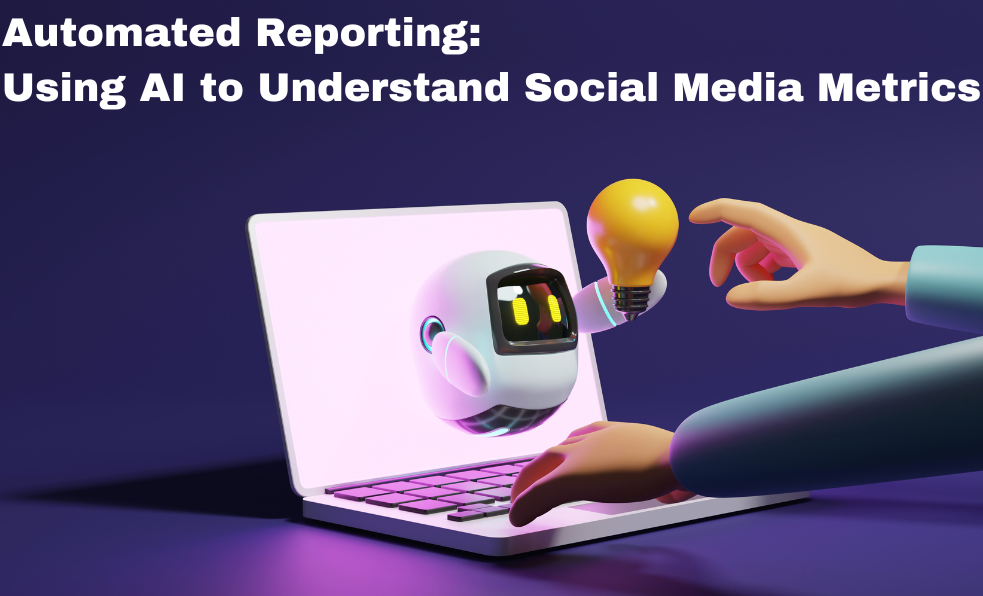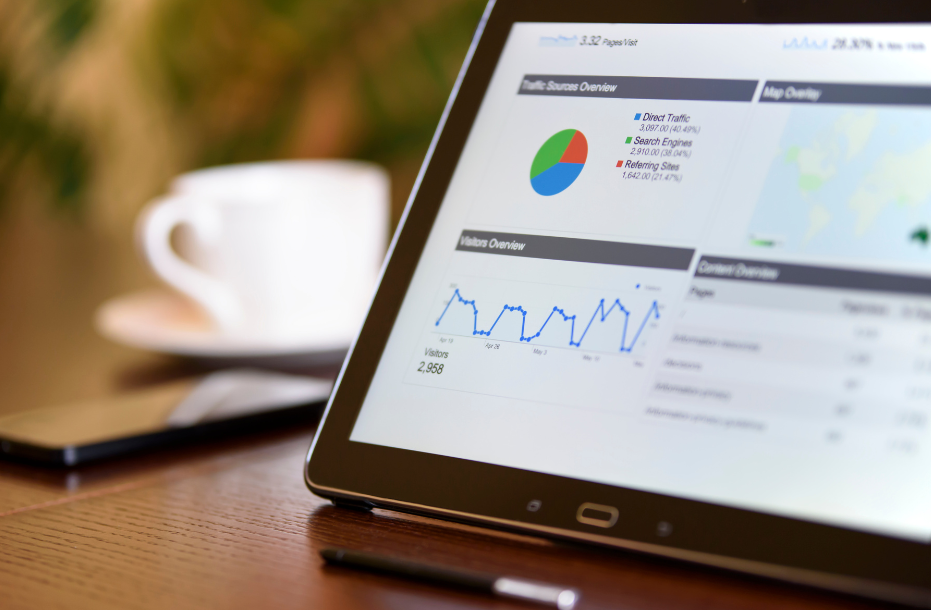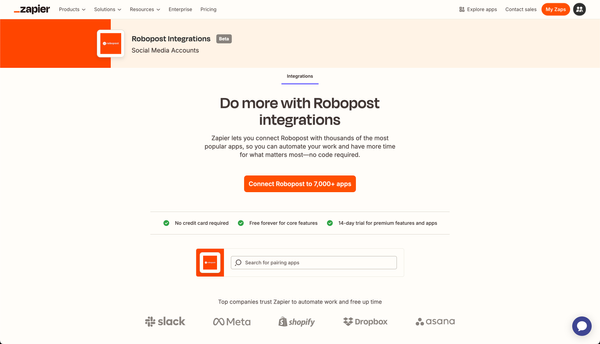Automated Reporting: Using AI to Understand Social Media Metrics
Explore how AI transforms social media analytics, automates tasks, and enhances engagement for better metrics and content strategy.

Using artificial intelligence (AI) has transformed how we handle social media metrics and reporting. AI allows businesses and individuals to automate the analysis of large amounts of social media data, helping them make quick and informed decisions to improve their online presence. This article looks at the various roles of AI in social media analytics, including real-time performance tracking and predictive insights, and how it is changing the way we manage and engage with our digital audiences.
Key Takeaways
- AI boosts social media analytics by offering real-time performance tracking and creating detailed dashboards and reports.
- AI streamlines routine tasks like scheduling, topic generation, and content repurposing across various channels.
- AI shows its reliability in content creation by tracking social trends, automating repetitive tasks, and personalizing user experiences.
- The future of social media monitoring will be transformed by AI-driven predictive insights, advanced analysis, and better customer service automation.
The Power of AI in Social Media Analytics

Real-time Performance Tracking
Understanding how your content is performing is important for social media marketing. Real-time performance tracking helps you make quick, data-driven decisions to shape your social strategy. With the right tools, you can monitor important metrics like engagement rates, audience demographics, and conversion rates, customizing reports to fit your business needs and goals.
Social media analytics tools aren't just about numbers; they tell you what your audience likes. By looking at these metrics in real time, you can adjust your approach to keep your content relevant and effective. Here are some key ad analytics to track:
- Total active ads
- Clicks
- Click-through rate (CTR)
- Cost-per-click (CPC)
- Cost-per-engagement (CPE)
- Cost-per-action (CPA)
- Conversion rate
- Total ad spend
Each social media platform has its own dashboard for these insights, but using a centralized spreadsheet can make it easier to get a complete view of your social media efforts.
Identifying Patterns and Personalizing Content
Using AI to spot patterns in social media behavior is a big advantage for marketers. By looking at large amounts of data, AI can find trends like popular topics, hashtags, and conversations that users are interested in. This helps create content that is relevant and targeted to the audience's interests.
Using AI in social media campaigns provides powerful insights, helping to refine strategies and increase return on investment (ROI). By automating pattern detection and personalizing content, businesses can stay competitive in social media.
Here’s a table showing how AI-driven personalization can boost engagement rates:
Strategy | Before AI | After AI |
|---|---|---|
Generic Content | 2% | - |
Personalized Content | - | 5% |
The table shows that engagement significantly increases with AI-personalized content. As AI improves, the ability to fine-tune social media campaigns and connect with audiences will only get better.
Automating Routine Tasks: AI-Driven Task Management

Scheduling and Publishing Content
AI-driven scheduling and publishing tools are essential for keeping a steady online presence. Tools like Robopost help marketers plan and automate content posting across different platforms, making sure the audience is engaged at the best times without needing to do it manually.
- Queue Scheduling: Set up posts in advance to be published automatically.
- Bulk Scheduling: Upload and schedule many posts at once to save time.
- Post-Recycling: Reuse successful content to reach more people.
- Content Categorization: Organize posts by topics for a balanced content strategy.
AI helps you not only schedule posts but also predict the best times to publish based on audience behavior, leading to higher engagement.
Using AI in these tools has transformed how social media content is managed, allowing creators to focus more on strategy and creativity. The ability to shuffle and reuse content keeps your social feeds fresh and relevant, while analytics offer insights into how effective your scheduling choices are.
Generating Topics and Crafting Posts
AI has changed how we create content for social media. AI text generators can now come up with many topic ideas specifically for your target audience. This makes brainstorming easier and ensures the content connects with the audience. With features like A/B testing and custom brand voice guidelines, these tools offer a level of personalization we couldn't achieve before.
AI's ability to repurpose content for different platforms is a major advantage for social media managers. It allows you to turn one piece of content into multiple formats suitable for various channels and audiences.
AI tools like ChatGPT, Articoolo, and Claude have expanded automated content creation. They can generate topic ideas, create basic captions, and even respond to social comments, automating routine tasks and freeing up time for strategic planning.
Here’s how AI helps in content creation:
- Brainstorming topic ideas: Generate ideas with a single click.
- Creating basic captions and posts: Make routine announcements easier.
- Classifying posts: Organize content into topics for a balanced mix.
- Repurposing content: Adapt one idea for multiple channels, increasing its impact.
Repurposing Content Across Channels
Repurposing content for different platforms isn't just a time-saver—it's essential. AI tools are transforming this process, making it easy to turn one piece of content into various formats for different platforms. For example, AI can convert videos into detailed blog posts or summarize long articles into short, engaging social media posts.
Using AI to repurpose content not only extends your message's reach but also keeps your brand's voice consistent across all channels.
Here's how to repurpose content:
- Identify evergreen and high-performing content: Find content that remains relevant and performs well.
- Adapt the content: Modify it to fit the style and audience of each platform.
- Schedule and automate distribution: Plan and automate when and where the repurposed content will be posted.
It's also important to regularly update repurposed content to keep it relevant and accurate. AI tools can help by flagging outdated or less effective content, ensuring your social media presence stays fresh and effective.
The Future of Social Media Monitoring and Automation
The Evolution of Social Media Customer Service
As social media platforms change, so does customer service. AI is transforming how businesses interact with customers. Automated responses and chatbots provide quick answers to common questions. The challenge is balancing automation with the human touch that builds real relationships.
AI-driven customer service tools are becoming more advanced, offering more detailed and relevant interactions. However, businesses need to ensure that automation improves the customer experience.
Key metrics to evaluate social media customer service include:
- Response Time
- Customer Satisfaction Score (CSAT)
- Net Promoter Score (NPS)
- Resolution Rate
- Volume of Interactions
These metrics show how efficient and effective the service is and provide insights into customer satisfaction and areas for improvement. The goal is to use AI to enhance human interaction, making customer service both personal and scalable.
Summary
As we’ve discussed in this article, using AI in social media management is a major change, not just a trend. AI-driven reporting and analytics give deep insights into social media metrics, helping brands create more targeted and engaging content. By automating repetitive tasks, personalizing interactions, and providing real-time performance analysis, AI tools let marketers focus on creative strategies that connect with their audience. Looking ahead, it’s clear that AI will be crucial for navigating the ever-changing social media landscape. For brands wanting to stay ahead, using AI in social media management is essential, not optional.
